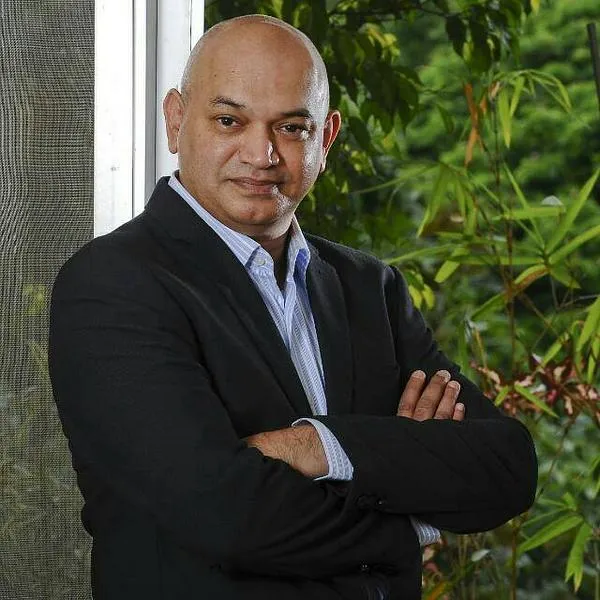Why Indian Angel Network remains bullish on startup investments
Indian Angel Network aims to invest in about 100 startups across sectors with its new Rs 1,000-crore Alpha Fund.
The Indian startup ecosystem is in the grip of a funding winter but green shoots are emerging from a few venture funds.
The Indian Angel Network (IAN), an early-stage investment platform, remains defiant in the face of macroeconomic headwinds with plans to invest in around 100 startups through its new Rs 1,000-crore fund.
Founded in 2006, IAN is among the leading angel investment platforms in the country with a primarily focus on early-stage startups. The platform, which raised a Rs 375-crore venture fund in 2017, has bigger investment ambitions now with its Alpha Fund that it launched in October.
While IAN typically invests Rs 1 crore–Rs 3 crore ($120,000–$350,000) in a startup, it is looking to sign larger cheques from its Alpha Fund, typically in the range of $1 million to $5 million.
Investing in the early stage
According to a PwC India report titled ‘Startup Deals Tracker - CY22’, total funding last year dropped 33% to $24 billion. In both 2021 and 2022, early-stage deals accounted for 60%–62% of the total funding (in volume terms).
The category remained a favourite among investors as early-stage deals contributed about 12% in terms of value to the total funding in 2022, compared with 7% in the previous year.
IAN expects to make the first close of the Alpha Fund at around Rs 350 crore by the end of March, and has already received considerable interest from investors within and outside the country.
The majority of the investment will be made through its angel network—comprising domain experts, CXOs, and entrepreneurs—which IAN believes is its strong point.
Learning from the past
IAN gained a few learnings from its first venture fund where it could not participate in the follow-on funding rounds of startups that raised capital from other sources.

Vinod Keni, Managing Partner, Indian Angel Network Alpha Fund
“When you don't participate (in follow-on funding), one sort of ends up with such minority equity positions that you're not able to really make any meaningful contribution. That's a big learning from fund one,” says Vinod Keni, Managing Partner at Indian Angel Network Alpha Fund, in an interaction with YourStory.
IAN is an early investor in startups including Uniphore and Wow! Momo, which raised larger follow-on funding extending up to the Series D round. While Uniphore secured $400 million in 2022, Wow! Momo landed $15 million from a new set of investors sans participation from IAN.
The Alpha Fund will be sector agnostic even though Vinod says some segments like cleantech, climate tech, healthtech, agritech, and industry 4.0 are gaining higher traction.
Investment strategy
For the new venture fund, IAN has categorised its investments into three buckets:
- The first bucket will comprise a third of the fund that will be used for follow-on investments for meaningful equity positions in portfolio startups.
- The second will involve co-investing along with its angel network, which gives IAN early access to potential winners.
- The third bucket will focus on co-investing with other external investors, going beyond its current portfolio of startups.
Vinod expects the Alpha Fund to make the final close of Rs 1,000 crore in 12 to 18 months. It has garnered interest primarily from family offices and wealthy individuals residing abroad as well as in India, including from beyond the metro cities.
While the funding environment has undergone a shift, IAN does not want to get carried away by any investment trends and will continue with its existing investment philosophy of parking money in sustainable businesses.
“The basic premise of venture investing is to actually look for good founders, strong teams, and the ability to execute disruptive ideas,” says Vinod.
The first fund’s internal rate of return (IRR) is about 50%, and two-thirds of its portfolio startups have gone on to raise their next round of capital. VCs use the IRR metric to estimate the profitability of potential investments.
The investment platform also boasts 50% proprietary startup investments, i.e. companies seeking capital from the investment platform first.
Vinod credits this to IAN’s network effect, bringing more functionality than just the capital through individuals who enable access to markets, resources, and mentorship to startups as well as founders.
IAN also boasts domain experts on its platform to help startups in its portfolio to scale. It also has an investment committee and advisory board to focus on the governance of investments.
While the funding winter may have slowed activity in the ecosystem, Vinod believes that irrespective of the low capital inflow, there are still opportunities to invest in technology-led innovative startups in India.
“I think good quality startups and entrepreneurs will still be able to attract resources, including capital,” he says.
Edited by Kanishk Singh








